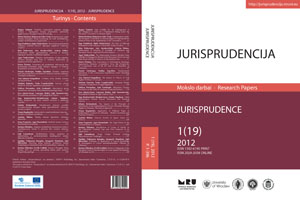Atskirų darbo sutarčių taikymas Lietuvoje – teorinės ir praktinės problemos
Application of Different Types of Employment Contracts in Lithuania – Related Heoretical and Practical Problems
Author(s): Tomas Bagdanskis, Rasa MacijauskienėSubject(s): Law, Constitution, Jurisprudence
Published by: Mykolas Romeris University
Keywords: types of employment contracts; employment contract types; employer; employee; non-standard labour relations; social security
Summary/Abstract: The article discusses theoretical and practical issues one may face when applying various types of employment contracts, refers to specific legal relations governed by Labour Code standards, and raises issues that would help to solve the existing troubles. Last decades as globalization processes were gaining pace, and market economy conditions changed, labour and production organization models were undergoing transformation. The more complex people’s social relationships are, the greater is the need to regulate these relationships, i. e. to adopt legislation that would create pre-conditions for addressing social interest conflicts. Thus a need has arisen for a new legal regulation because new activity models do not fit into traditional relationships governed by labour law. Along standard employment relationship, non-standard relationships occur in the market. In 2003 the Ministry of Social Security and Labour of the Republic of Lithuania issued recommendations for employers on flexible work organisation forms and indicated reasons for the organisation of flexible work forms: the nature of work and employee’s demographic and social characteristics; fulfilment of family duties; health condition; unfavourable work environment; employee’s age; studying and studies.
Journal: Jurisprudencija
- Issue Year: 19/2012
- Issue No: 1
- Page Range: 249-267
- Page Count: 20
- Language: English

